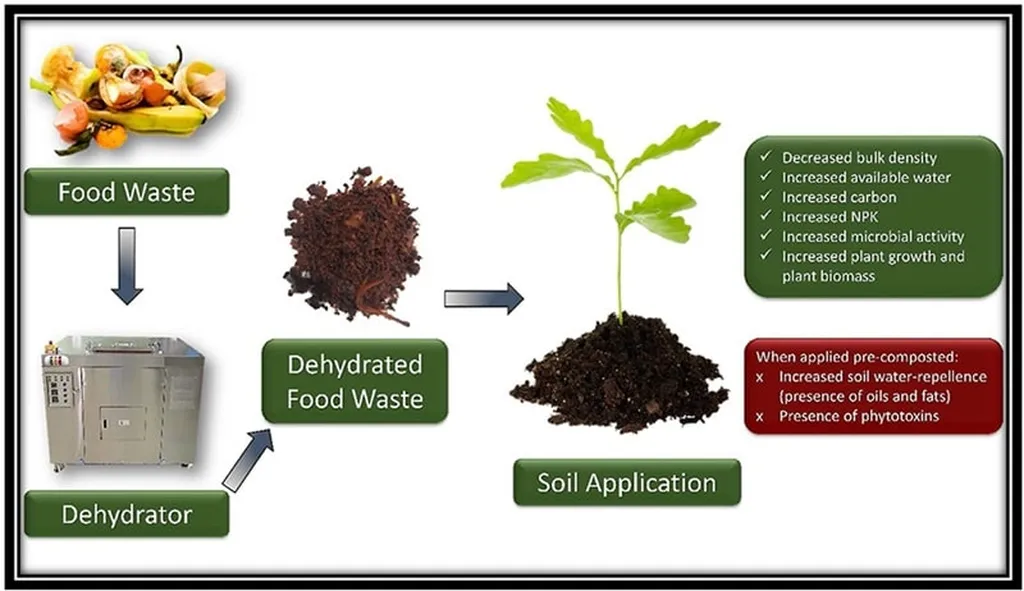In a world grappling with food waste and environmental degradation, a novel solution is emerging from the very problem itself. Researchers have been exploring the potential of transforming food waste into organic fertilizers, a process that not only addresses waste management but also promises to revolutionize sustainable agriculture. A recent study published in the *International Journal of Food Science* delves into this promising avenue, offering critical insights and practical pathways for the agriculture sector.
Food waste is a growing sustainability challenge, squandering precious resources and exacerbating environmental issues. However, by converting this waste into organic fertilizers, we can recover nutrients, reduce landfill burdens, and foster a circular bioeconomy. The study, led by Md. Suhel Mia from the Department of Food Engineering and Tea Technology, critically examines four major conversion routes: composting, vermicomposting, anaerobic digestion, and pyrolysis. These methods hold the key to unlocking the potential of food waste-derived organic fertilizers (FWOFs).
The research highlights the multifaceted benefits of FWOFs, including improved soil health, enhanced nutrient cycling, and increased crop yield and quality. “FWOFs offer a sustainable solution that aligns with the principles of a circular economy,” Mia explains. “By converting food waste into valuable fertilizers, we can create a closed-loop system that benefits both the environment and agriculture.”
However, the study also underscores the variability in outcomes due to differences in feedstocks, processing methods, and application practices. While FWOFs show strong potential for improving soil organic matter, water retention, and micronutrient supply, they also pose unresolved risks such as heavy metal contamination, microplastics, and pathogen survival. “The heterogeneity in feedstocks and processing methods presents both opportunities and challenges,” Mia notes. “Standardization and further research are crucial to maximize the benefits and mitigate the risks.”
The commercial impacts for the agriculture sector are significant. As the demand for sustainable and organic products continues to grow, FWOFs offer a cost-effective and eco-friendly alternative to traditional fertilizers. Farmers can reduce their reliance on synthetic inputs, lower production costs, and enhance soil fertility, ultimately leading to higher crop yields and improved quality.
The study also identifies critical knowledge gaps and standardization needs, providing a roadmap for future research and adoption. By integrating multiscale evidence, the research offers concise guidance for advancing sustainable agriculture and circular bioeconomy practices. “This work underscores both the opportunities and limitations of FWOFs,” Mia concludes. “It provides a fertilizer-focused perspective that identifies critical knowledge gaps, standardization needs, and adoption pathways.”
As the agriculture sector seeks innovative solutions to enhance sustainability and productivity, the transformation of food waste into organic fertilizers emerges as a promising avenue. By addressing the challenges and leveraging the opportunities, farmers and agribusinesses can pave the way for a more sustainable and circular future. The research published in the *International Journal of Food Science* offers valuable insights and practical pathways for the agriculture sector to embrace this transformative approach.

